Oct 28, 2025 10:47 AM
In Memoriam: Jack DeJohnette, 1942–2025
Jack DeJohnette, a bold and resourceful drummer and NEA Jazz Master who forged a unique vocabulary on the kit over his…
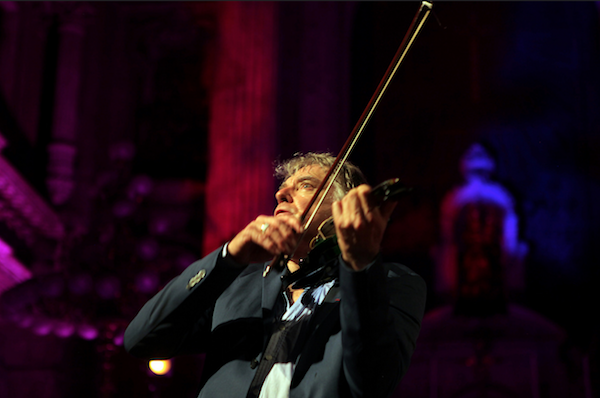
Didier Lockwood performs at Igreja da Candalaria in Rio de Janeiro on Nov. 10 as part of the MIMO Festival.
(Photo: Courtesy MIMO Festival)An American devotee of Brazilian music attending a music festival in Rio de Janeiro might expect to hear a few familiar sambas and choros, or even a maracatu or baião. Despite the occasional samba, however, the Rio edition of Brazil’s annual multi-city MIMO Festival, held Nov. 10–12, had other things on its mind this year: the world of music outside Brazil, and the more adventurous the better.
Although there were plenty of Brazilian artists on the bill, the program was dominated by musicians from elsewhere in South America, Africa and Europe. (France was especially well represented.) All the performers, whatever their tradition, seemed interested in using traditional materials to create new forms, not celebrating the past. The musical bazaar included MPB (Brazilian pop), Afro-pop, Portuguese pop, jazz, salsa, Middle Eastern-influenced music and unclassifiable music, much of it fascinating, from around the world. It even ended with a samba explosion to make traditional Brazilian music fans smile.
MIMO—the name stands for “Mostra (Show) Internacional Musica Olinda”—is the brainchild of music impresario and record producer Lu Araújo. The festival has been around since 2004, when it began in the historic northeastern town of Olinda with the express purpose of bringing primarily instrumental music to the Brazilian public. Over the years it has expanded to four additional cities around Brazil: Tiradentes, Paraty, Ouro Preto and Rio; concerts are held on a series of three-day weekends over two months in the fall. Funded by a five percent “culture tax” on corporations, the festival is free and open to all. Along with concerts, MIMO offers master classes and a film festival with a music theme.
Although unmitigated jazz was uncommon at this year’s festival, it could not have been better represented than in the person of French violin master and composer Didier Lockwood, who played a show dedicated to the legacy of his mentor, legendary Hot Club violinist Stephane Grappelli.
Lockwood and his adroit trio with acoustic guitarist Adrien Moignard (known for his work with singer Cyrille Aimée) and French bassist Diego Imbert performed in the beautiful Igreja Candalaria in central Rio, an ornate, cavernous cathedral that dates back to the 18th century. Playing “Nuages,” one of Grappelli’s most famous songs (actually written by his bandmate Django Reinhardt), Lockwood proved himself to be Grappelli’s true heir. He alternated phrases of exquisite tenderness, sometimes soaring into the violin’s stratosphere, with explosive, Hendrix-style blues riffs that recalled his beginnings in jazz fusion.
The pièce de résistance, however, came when Lockwood switched to a six-string electric violin, enhanced by pedal-controlled loopers and synths, to improvise a piece of orchestral scope that included African-inspired percussion, flamenco grooves, seascapes with crying gulls and, eventually, Americana fiddling. It was a spectacle, to be sure, but also music of undeniable power and majesty.
The next day, at the much smaller but pretty Our Lady of Bonsuccesso church, a most unusual trio appeared: two accomplished percussionists, Simone Sou and Guilherme Kastrup, and Brazilian jazz pianist/composer Benjamin Taubkin. They, too, employed electronics, with synths providing a sonic floor of bass obbligatos and drones supporting urgent flights of Afro-Brazilian percussion, over which Taubkin played, by turns, impressionistic chords and the occasional post-bop run.
Sou’s passion and intensity made an especially strong impression; her exotic outfit—a dress with beaded fringes (which she later said she made herself) and ankle-length boots with rows of bells attached—was itself another percussion instrument in her arsenal.
A third church concert on Nov. 12 featured Laura Perrudin, the young French singer and chromatic harpist, who applied her pure voice and serious jazz chops to a singular repertoire of original songs, many from her new album Poisons & Antidotes (Wrasse Records). Perrudin performed solo, with a battery of synths, loopers and effects. She is an artist to watch: Although her performance occasionally seemed held captive by technology, her material includes songs with real seductive power.
In the evenings, the international performers on the main stage at Marina da Glória, a waterfront amphitheater, tended to be more pop-oriented. They included crowd pleasers like Rio-based singer Aline Paes (who specializes in bridging the rhythms of Brazil, Portugal and Africa), Brazilian singer/MC Russo Passapusso and Malian blues rocker Vieux Farka Toure and his power trio.
The biggest crowds turned out on Nov. 12 for the headliner, Criolo, a Brazilian rapper and soul singer from the slums of São Paulo, who has amassed an international following. Criolo, 42, has lately turned to samba music—roughly the equivalent of Eminem or Snoop Dogg singing standards. Samba, however, is different in that it’s historically the people’s music, and Criolo sings it to unite and exhort his countrymen in Brazil’s current circumstances of political and economic upheaval.
Criolo performed with a traditional, rhythmically compelling samba band including seven-string guitar, cavaquinho, trombone, flute, drums and three percussionists. In the middle of his set, he introduced 93-year-old Nelson Sargento, a founding father of samba, who was helped to his feet to address the crowd. “Jovens do Brasil …” he said, “samba vive!” (“Youth of Brazil … samba lives on!”). He then charmed the audience with a rendition of one of his hits, “Falso Amor Sincero” (“False Sincere Love”).
Later, Criolo led a chant of “Fora, Temer!” (“Out, Temer!”) directed at the country’s unpopular current president, Michel Temer, who inherited the office upon the impeachment of former president Dilma Rousseff. He closed the concert with his current samba hit, “Menino Mimado” (“Spoiled Boy”). The crowd sang along, joining in on the song’s refrain: “Spoiled boys cannot rule the nation!” DB
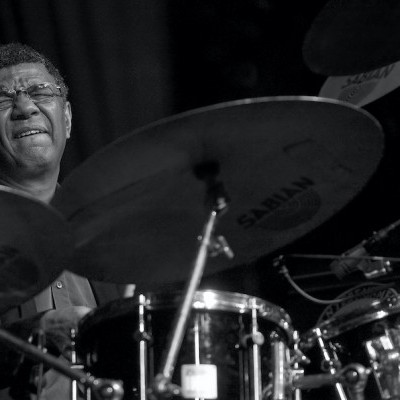
Jack DeJohnette boasted a musical resume that was as long as it was fearsome.
Oct 28, 2025 10:47 AM
Jack DeJohnette, a bold and resourceful drummer and NEA Jazz Master who forged a unique vocabulary on the kit over his…
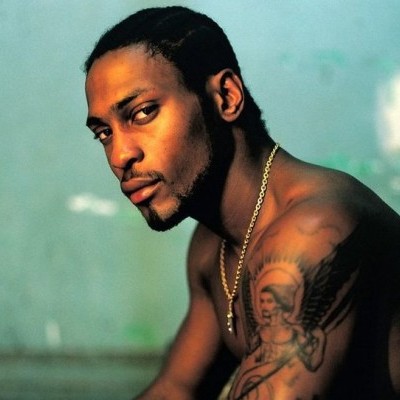
D’Angelo achieved commercial and critical success experimenting with a fusion of jazz, funk, soul, R&B and hip-hop.
Oct 14, 2025 1:47 PM
D’Angelo, a Grammy-winning R&B and neo-soul singer, guitarist and pianist who exerted a profound influence on 21st…
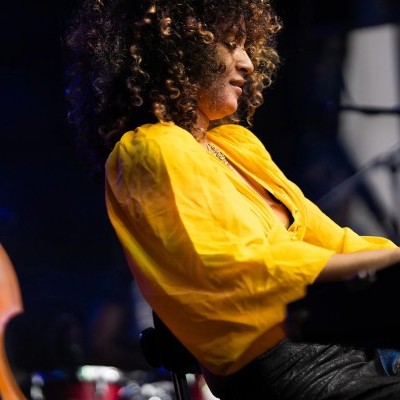
Kandace Springs channeled Shirley Horn’s deliberate phrasing and sublime self-accompaniment during her set at this year’s Pittsburgh International Jazz Festival.
Sep 30, 2025 12:28 PM
Janis Burley, the Pittsburgh International Jazz Festival’s founder and artistic director, did not, as might be…
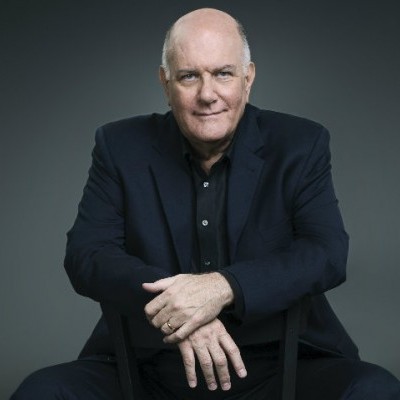
Jim McNeely’s singular body of work had a profound and lasting influence on many of today’s top jazz composers in the U.S. and in Europe.
Oct 7, 2025 3:40 PM
Pianist Jim McNeely, one of the most distinguished large ensemble jazz composers of his generation, died Sept. 26 at…
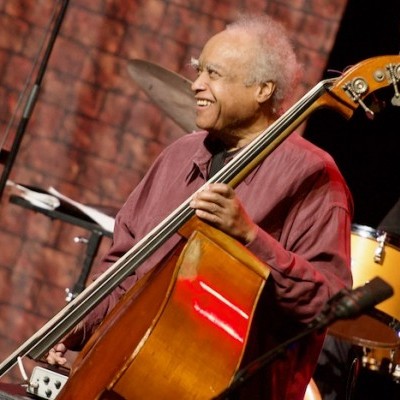
Drummond was cherished by generations of mainstream jazz listeners and bandleaders for his authoritative tonal presence, a defining quality of his style most apparent when he played his instrument unamplified.
Nov 4, 2025 11:39 AM
Ray Drummond, a first-call bassist who appeared on hundreds of albums as a sideman for some of the top names in jazz…